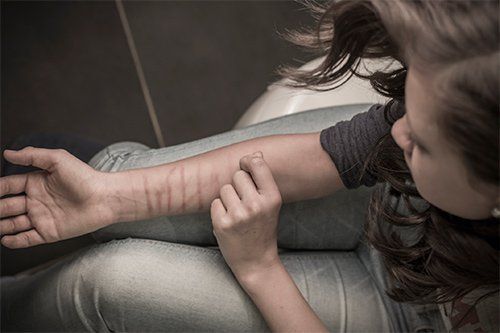Self-Injury and Cutting: 5 Tips to Help Your Teen
Cutting is a form of self-injury that has become a problem among adolescents. Have you been noticing recurring cuts and scars on your child's arms, hands, legs, or torso? If so, your child might be affected by psychological disorders that lead to cutting.
A teen might inflict self-harm for various reasons, such as low self-esteem or depression. Individuals who cut themselves use various implements for self-injury, including knives, nail clippers, and files or any sharp object.
If you suspect your teenage son or daughter is self-harming by cutting, you can intervene and help in a variety of ways. Consider the following measures to help your child through this ordeal.
1. Try to Determine the Cause Behind the Self-Destructive Behavior
Once you understand why your child is cutting themselves, you may be able to provide support and help with recovery. Speak to your child to learn how they are actually feeling. Communication is crucial.
Is your teen experiencing problems at school or with peers? Whether the problem lies with bullying, trouble maintaining friendships, or pressure from schoolwork and studies, you might want to speak with your child's teachers or school guidance counselors.
Has your child recently experienced an emotional trauma or personal loss? Sometimes grief may lead to feelings of personal guilt, which in turn may manifest through actions of self-injury, such as cutting oneself. Is there trouble or conflict at home? Anxiety and depression may be behind the self-destructive behaviors, and talking it over may help.
Once you are successful at determining how your child truly feels, let them know you are on their side. It is important not to be judgmental or show a tone of accusation in your approach. Ask your child if you can do something to help. Most of all, it may be a relief for your teen to share the pent-up emotions with a loved one.
2. Accept Your Child Unconditionally
A parent's acceptance is vitally important to a child or teenager. Knowing that they are loved unconditionally no matter what can make a difference in your teen's self-esteem. If your child realizes they have the unconditional love of parents, the desire to inflict self-harm may lessen.
3. Make Time for Your Son or Daughter
Sometimes just making time for one's children can ensure feelings of security and reinforce bonds. Some children and teens who cut and intentionally harm themselves may feel isolated and separated from loved ones. Be sure to put aside quality time for your teen. Whether it's for an outing, a quiet dinner together or a sporting event, sharing your life and daily activities with your child may be of help.
4. Seek Professional Help for Your Child
If self-injury becomes an ongoing struggle that doesn't seem to end, seek professional intervention. Ignoring the fact that your child may need professional counseling will only prolong and possibly worsen the problem.
You may want to go with your child to counseling sessions. Siblings may wish to join in a therapy session as well. Family counseling is sometimes encouraged, which may help family members understand ways to reach out and help.
5. Learn More About Self-Injury and Cutting
In addition to seeking professional therapy, ask the mental health specialist and your child's physician for material on cutting. Read up on this affliction to get a better understanding of how it affects individuals and families. Watch videos if possible and do this together.
Don't delay in stepping in and helping your teen cope with the issue of self-inflicted harm. You should always consult with a mental health specialist as you work with your teen to make sure that you are providing actual help and not accidentally worsening the situation.

